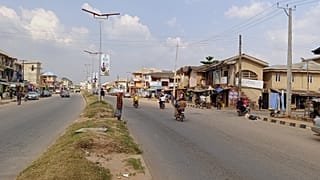Uganda
The United Kingdom on Wednesday advised its citizens to avoid Uganda's famous Queen Elizabeth National Park after three people, including a British national, were killed the previous day by ADF rebels.
In its advice to travellers, the British government "advises against all but essential travel to this park" in the south-west of the country, which is very popular with tourists.
"If you are currently in the park, you should follow the advice of the local security authorities. If you are able to do so safely, you should consider leaving the area", they added, stressing that "the assailants are still at large".
The Ugandan authorities announced on Tuesday evening that three people, including British and South African nationals, and their Ugandan guide, had been killed while travelling in Queen Elizabeth Park, on the border with the Democratic Republic of Congo (DRC).
The police attributed the attack to the Allied Democratic Forces (ADF), a militia group based in the east of the DRC that has pledged allegiance to the Islamic State (IS) group.
Established in the early 1990s by majority-Muslim Ugandan rebels, the ADF are now largely based in the DRC and regularly commit deadly attacks both on Congolese and Ugandan soil.
In June, the group carried out an attack on a school in western Uganda, killing 42 people, including 37 students.
Most recently, planned bomb attacks against churches near the capital Kampala were foiled by security forces.













01:59
Nigeria aim for perfect group finish as Uganda chase AFCON survival
01:03
Controversy grows in DRC over alleged tolerance of anti-Tutsi rhetoric
02:00
Nigeria: Rescued teacher reunites with family as last captives are freed
01:11
Democratic Republic of Congo resumes cobalt exports after 10-month ban
02:19
In Goma, Kivu Fashion Week celebrates solidarity, hope and resilience
00:24
DR Congo: is Katanga the next target for M23 rebels?